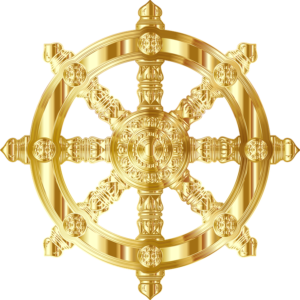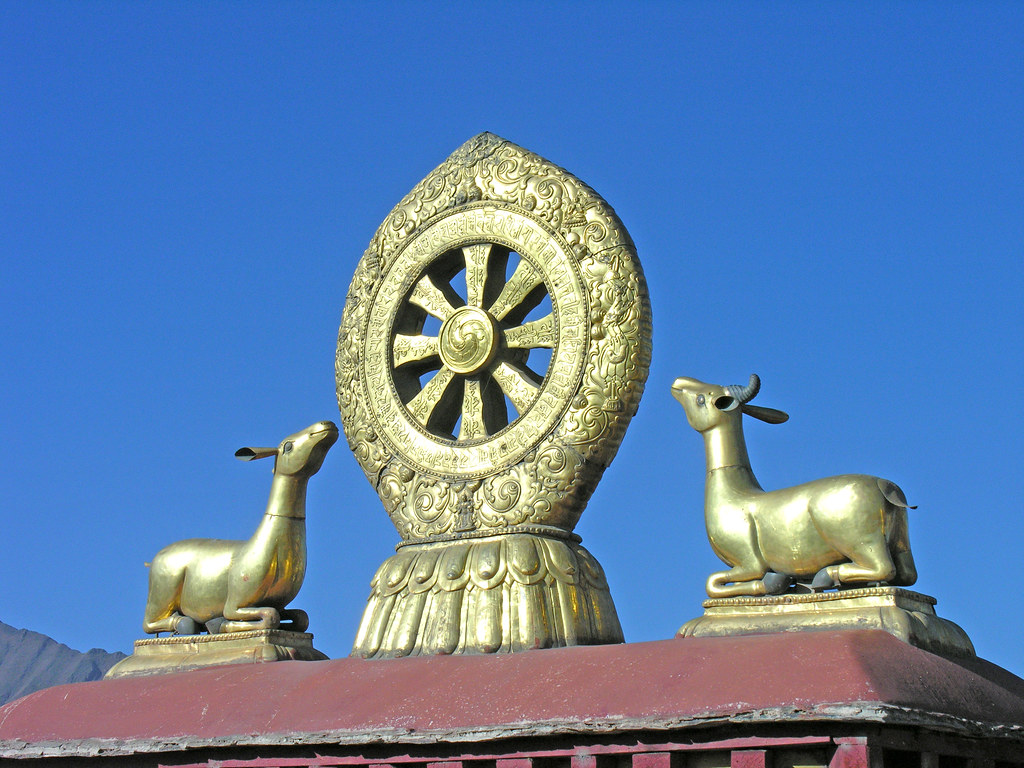Strictly, ‘Dharma’ is a Sanskrit term meaning ‘to carry or hold’.
At first glance this meaning tells us nothing; it offers us nothing to carry and less to hold onto! It is like squeezing a fistful of water. Just reading the word leaves us wrestling with the feeling that we have been duped by a paradox to define a quality that never existed. Yet, shockingly, this is the answer to our conundrum.
 That dharma is in front of us and behind us, and that we are a part of dharma and it is a part of us is what makes the concept of this Eastern philosophical word so difficult to hold onto. Forget the fistful of water – try looking into your own eye.
That dharma is in front of us and behind us, and that we are a part of dharma and it is a part of us is what makes the concept of this Eastern philosophical word so difficult to hold onto. Forget the fistful of water – try looking into your own eye.
We need a statement, an axiomatic mirror image that can be argued to infinity because if we could absolutely and immediately prove the statement about dharma, it would never have presented a challenge worth dedicating one’s life to or found its home as the fundamental discovery and teaching of every revelatory religion, philosophy, and spiritual movement on earth for thousands of years.
Statement:
Dharma is a slip-sliding universal quality that changes according to the context of the moment and has also been called tao, buddha mind, buddha nature, universal mind, work, one’s true work, reality, enlightenment, and truth. It is specifically, but not exclusively, tied to humanity through our sentient work to search for truth in ethics, morality, diplomacy, politics, art, philosophy, and love in its broadest sense.
I know you hate me. But if I began with “Dharma is the truth,” as a dogmatic point that there is only one truth, thousands of years of world-wide cultural soul searching would never have happened, archeologists and historians would lose job security and have no reasons to apply for grants.
Dharma is the truth.
It may bring fleeting sadness or temporary happiness or insecurity, but we must come to grips with the fact that truth cannot be carried with you or held in your fist. The only truth that exists is in the moment.
All is momentary, and moments have a way of changing and evolving new contexts through which we perceive our journey, and of turning to dust in the winds of time. If dharma, as truth, is an infinite debate, how do we find it? Buddha searched for dharma over many years. He did not find it. Then, one day sitting under the Bo Tree, dharma, truth found him. Buddha ‘witnessed’ truth without trying to hold it or squeeze it in his compassionate fist. Buddha and dharma met. I think we meet dharma when we are ready to meet each moment of our lives in acceptance of that moment’s truth. Philosophy gives us an understanding of the truth. With a long practice of focused work, faith gives us the courage to accept the moments of our life, the beautiful moments that take our breath away, and the moments that try our souls, challenging us to face the next moment.
When Bodhidharma was asked, “Who are you?”, all he could say was, “I don’t know.”
[i] The Shambhala Dictionary of Buddhism and Zen/Shambhala Publications Inc.





